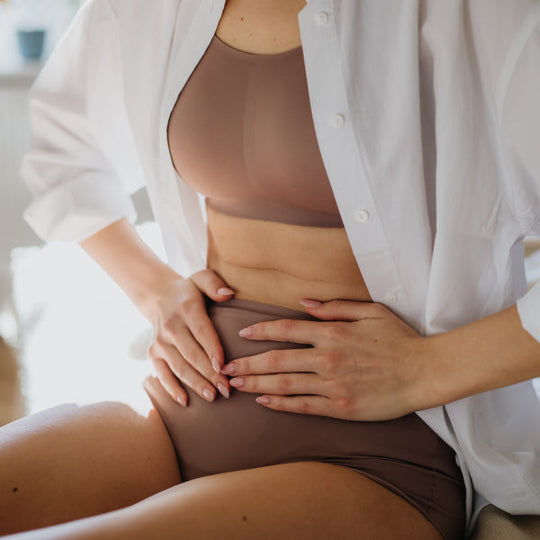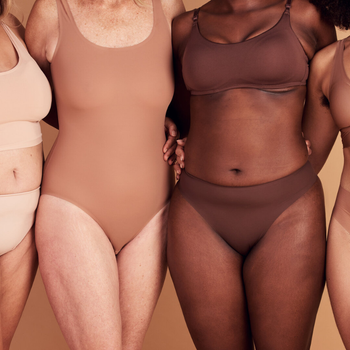Vaginal itching is a common concern that can affect individuals at any stage of life. Whether it’s a persistent irritation or a sudden flare-up, it’s important to understand what’s causing the itch down there and how to get relief quickly and safely. The good news is that in most cases, it’s treatable with the right care and attention. Whether you're navigating hormonal shifts, managing a skin condition, or dealing with a temporary imbalance, understanding the underlying cause is key to finding relief.
In this guide, we’ll break down the most common causes of vaginal itching, effective treatment options—including clinically backed home remedies—and when it’s time to consult a healthcare provider.
What Causes Vaginal Itching?
Vaginal or vulvar itching can be triggered by a variety of physical and environmental factors. Some of the most common include:
- Urinary Tract Infections (UTIs): UTIs can cause irritation around the urethra and vulva, often accompanied by burning during urination and frequent urges to go.
- Skin Conditions: Eczema, psoriasis, and contact dermatitis can all affect the vulvar area, particularly when triggered by soaps, laundry detergents, or synthetic fabrics.
- Vaginal Infections: Yeast infections and bacterial vaginosis (BV) are among the most frequent causes of vaginal itching. These conditions may also produce discharge or odor and are typically linked to changes in the vaginal microbiome.
- Hormonal Changes: During perimenopause and menopause, reduced estrogen levels can lead to thinning of the vaginal tissue, dryness, and increased sensitivity—often resulting in itching or discomfort.
- Overwashing or Use of Irritants: Excessive washing or the use of fragranced soaps and douches can disrupt the natural protective barrier of the vulva, leading to dryness and inflammation.
How to Stop Vaginal Itching
If you’re experiencing itching, your first step should be to simplify your routine and support the skin barrier.
- Avoid harsh products: Eliminate scented soaps, douches, and wipes. Use warm water or a doctor-recommended, fragrance-free cleanser. Soothe is gentle a vulva-safe wash that's formulated with clinically-studied ingredients and is fragrance-free
Soothe Bath Soak & Shower Gel
- Use topical relief products: Formulas specifically designed for vaginal and vulvar health can offer significant relief. V Relief Serum, for example, is formulated to soothe irritation associated with dryness and hormonal changes. Similarly, Daily V Lotion provides ongoing hydration and comfort.
V Hydration & Relief Duo
- Wear breathable clothing: Loose-fitting, cotton underwear allows the vulva to stay dry and reduces friction—a simple yet effective way to minimize irritation.
- Cool compresses: A clean, cool compress can temporarily reduce itching and inflammation.
Home Remedies That May Help
Several evidence-informed remedies can be safely used at home to relieve symptoms:
- Kindra’s V Relief Serum or Daily V Lotion: These hormone-free products are specifically formulated for sensitive vulvar skin, helping to restore moisture and ease discomfort.
- Colloidal oatmeal baths: Oatmeal has well-documented anti-inflammatory properties. A lukewarm bath with colloidal oatmeal can be calming for irritated skin. Soothe Bath Soak & Shower Gel contains omega-rich, restorative oat kernel extract for skin healing support and hydration
- Hydration: Staying well-hydrated supports the health of all mucosal tissues, including the vaginal area.
- Loose, moisture-wicking clothing: Avoid tight leggings or synthetic underwear that trap heat and moisture.
How to Prevent Vaginal Itching
Long-term prevention starts with supportive daily habits:
- Practice gentle hygiene: Cleanse the external vulvar area once daily with warm water and, if necessary, a mild, non-irritating cleanser.
- Stay dry: Change out of wet or sweaty clothing promptly.
- Moisturize regularly: For those experiencing chronic dryness, a daily v moisturizer can help maintain hydration and reduce irritation. Our vulvovaginal moisturizers are recommended by over 5,000 OBGYNs, pelvic floor therapists, and medical providers.
V Hydration & Relief Duo
Support your microbiome: A balanced diet, limiting unnecessary antibiotic use, and managing stress can help maintain a healthy vaginal environment.
When to See a Healthcare Provider
If symptoms persist or are accompanied by other concerning signs—such as unusual discharge, persistent odor, sores, or discomfort during intercourse—it’s important to consult a healthcare professional. Persistent vaginal itching may be a sign of an infection, an allergic reaction, or another underlying medical condition that requires treatment.
The Bottom Line
While vaginal itching is common, it doesn’t have to be your norm. With a better understanding of its causes and access to targeted solutions like Kindra’s V Relief Serum and Daily V Lotion, you can take steps to restore balance and comfort. As always, if symptoms continue or worsen, don’t hesitate to seek guidance from your healthcare provider.
Leave a Reply
Tags: Health & Wellness















